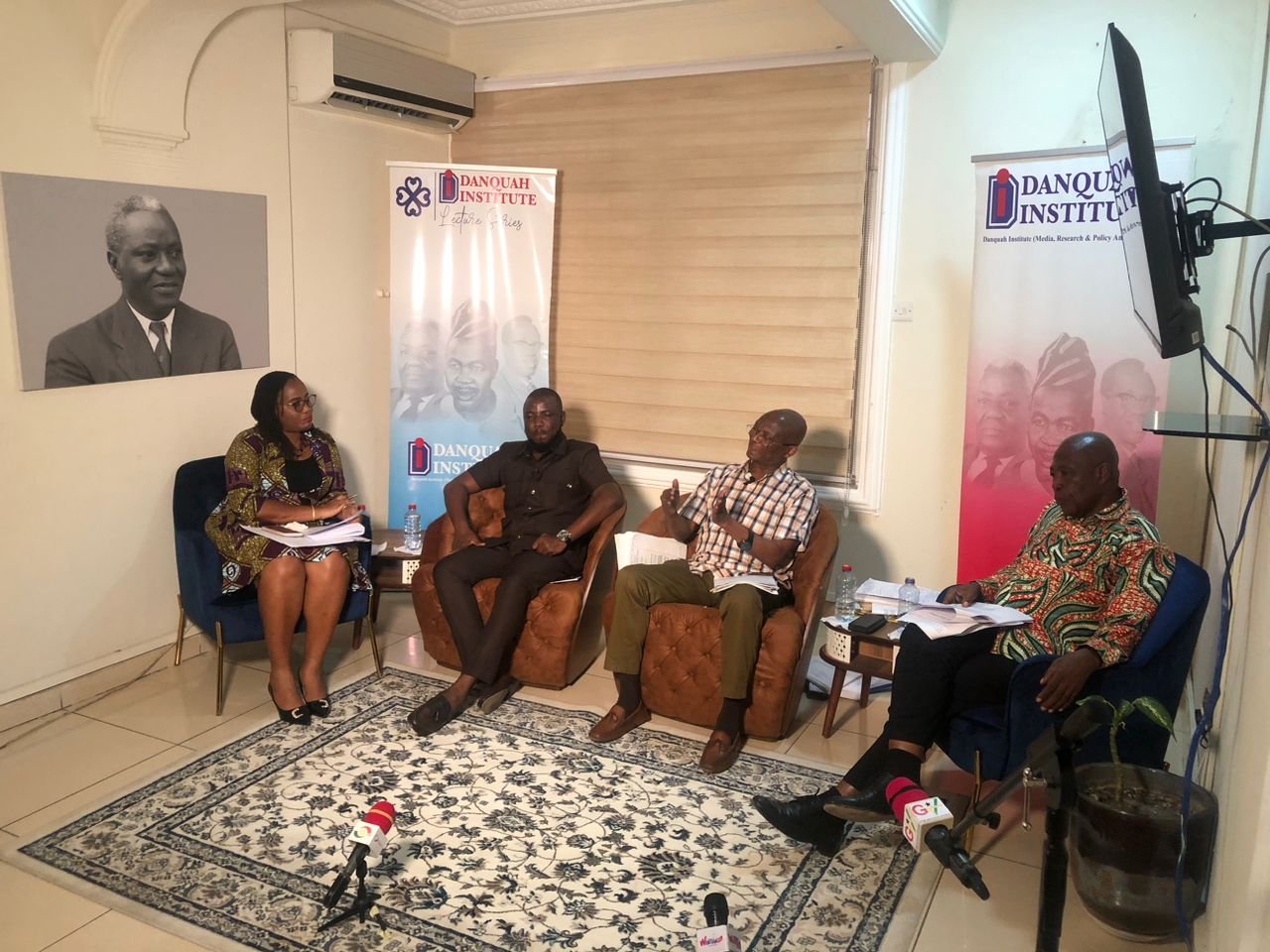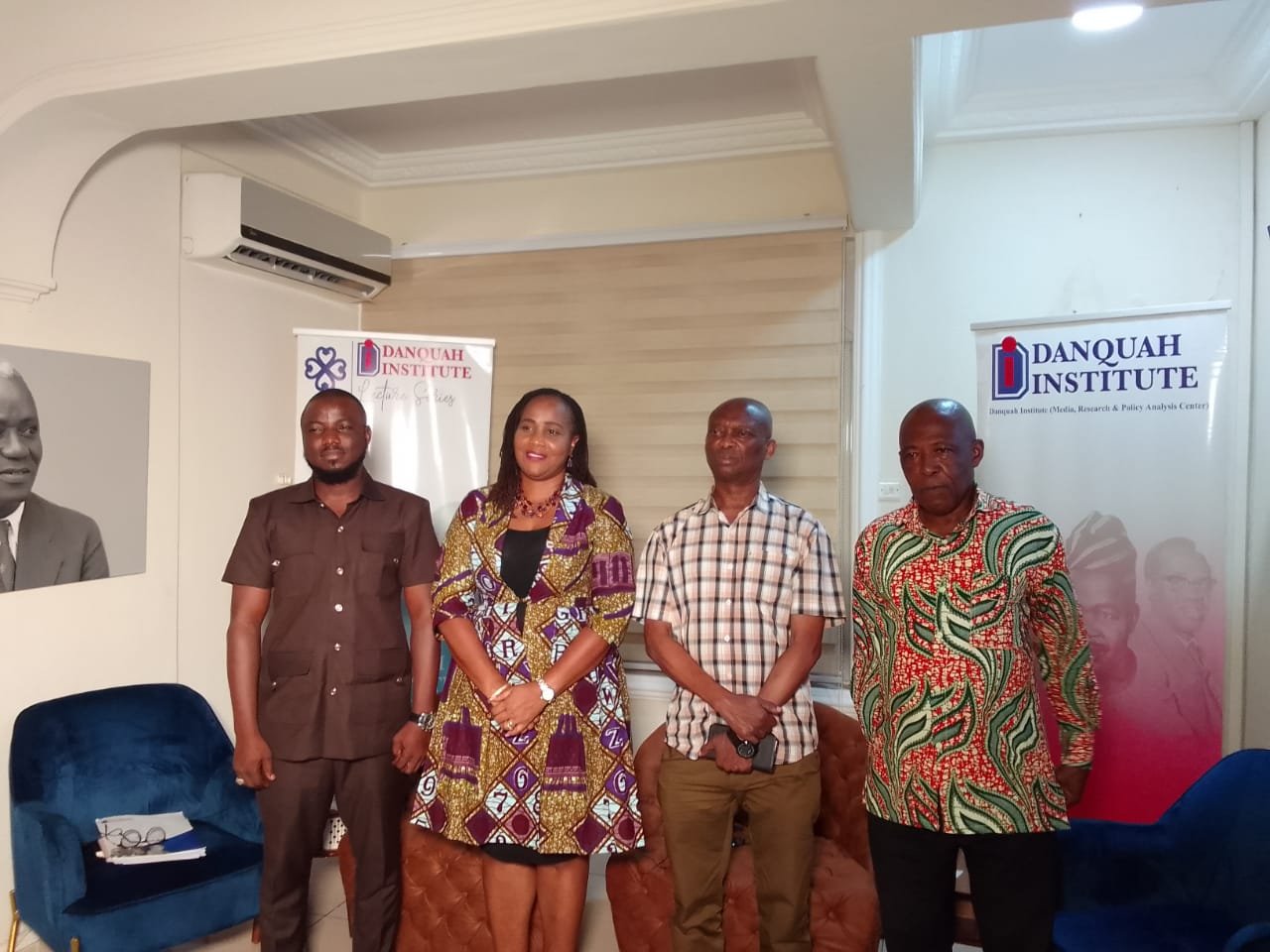
(Left to Right) Dr. Seidu Alidu, Dr. Antoinette Tsiboe-Darko, Mr Abdul-Malik Kweku Baako and Mr Kwadwo Afari

Panelists brainstorming on the country’s history and democratic journey have concluded that it would be wise to put behind Ghana its history of coups. Doing that, they insisted, requires collective engagement, effective deterrence, bold action and equally important adequate preventive measures.
They made the call during a ‘Dialogue Series’ organised by the Danquah Institute (DI) yesterday in Accra. It was under the theme “Reflecting on the 24th February and the Post Independent Democracy of Ghana”. The Executive Director of DI, Dr. Antoinette Tsiboe-Darko, served as the moderator of the discourse.
Commitment to discarding authoritarian rule, they stressed, is a major ingredient in protecting the country’s democratic process and in promoting individual liberties and freedom of speech necessary to build the self-confidence of Ghanaians.
Consequences of coups
Making a submission, a panelist and Senior Lecturer at the Political Science Department in University of Ghana, Dr. Seidu Alidu, said since 1966, the band of merry, wild-eyed assorted liberators, redeemers and revolutionaries that had seized power at dawn and woken Ghana up to martial music and terse announcements did very little or nothing at all to turn the country around as promised.
He maintained that, in many cases, coups had led to situations worse than the situation existing under the politicians they had ‘cursed’ upon the takeover. He therefore reminded Ghanaians of the need to allow history to propel “us to gird our loins to protect our democratic processes.”
He added that since the exercise of the current democratic process had engendered glory and fame to Ghana on the African continent, it is incumbent on citizens to put shoulders to the wheel to have it sustained at all cost.
Dr Alidu indicated that, fortunately, for three decades, the country had succeeded in keeping the choice of governance within the will of its electorate, courtesy of the 1992 Constitution.
He touched on Nkrumah’s leadership, deploring his flouting of the Preventive Detention Act, passed in 1958, which gave power to him, as then Ghana’s Prime Minister, to detain certain persons for up to five years without trial.

Dispelling claims
Another panelist, Abdul-Malik Kweku Baako, who is the Editor-in-Chief of the New Crusading Guide, dispelled claims that the CPP was not united and responsible for the current woes.
He added that its preoccupation with national security may have emanated from one common vision to ensure a system of stability in making the nation safe to live and work in.
He said Ghana experienced five successful coups, including a palace coup from 1966 and 1972 through 1978 and 1979 to 1981, all of which violated the basic laws of the country.
“The muzzling of the media, a clampdown on human rights and freedoms, dawn-to-dusk curfews and the detention without trial of many prominent persons, a clampdown on some religious activities, the collapse of many businesses as well as a general fear in the country were pervasive,” he recalled.
In his view, he did not know anyone who grew up in those era who for a minute who would wish a return to those days for any reason.
Works to do
On governance, he stressed that there is absolutely no denying the fact that “we have a lot of work to do to improve our governance structures and processes and improve the lives of our people”.
That, he indicated, must come through serious activism by non-state actors and a collective will and urgency to build this country through its institutions.
He therefore urged the citizenry to stay vigilant on the government, particularly Parliament and Executive. He also emphasised the role of Parliament in exercising oversight on the Executive and in setting the tone for public discourse.
He said it was for the good of the country that Parliament continued to develop capacity to insist on accountability in all aspects of the country’s life.

According to him, although Ghana and, for that matter Africa, has come a long way in attaining democratic credentials, not everybody has accepted democracy as the preferred mode of governance.
Their reason, he explained, is the claim that Africa is underdeveloped and democracy is cumbersome and, therefore, there is the need to get things done in a hurry.
For his part, Kwadwo Afari, Director of Protocol of the New Patriotic Party, also a panelist, said the call for African unity by Ghana’s first President, Dr Kwame Nkrumah, still rings true today, five decades after his demise.
He said Africa is still facing the challenges of common currency, intra African trade and free movement of people and goods across the continent many decades after the pronouncement of African unity.






